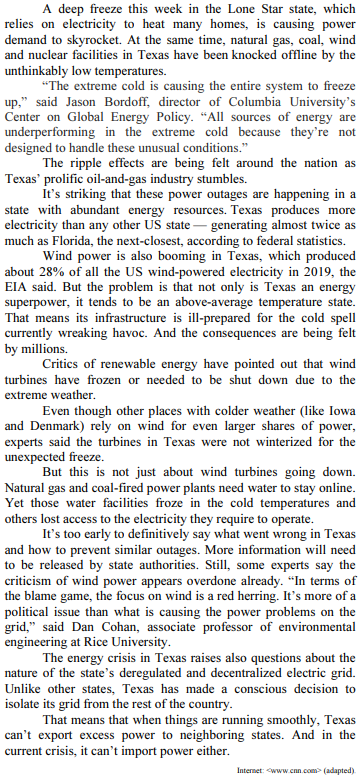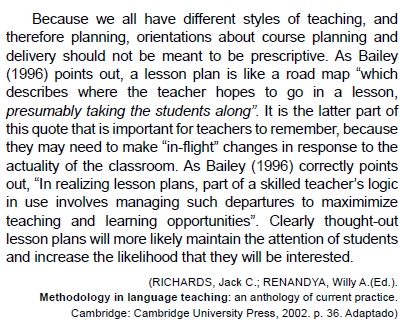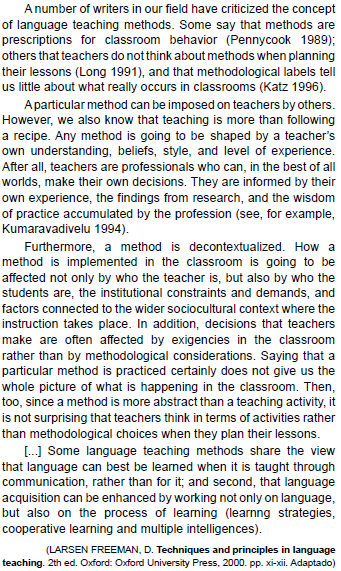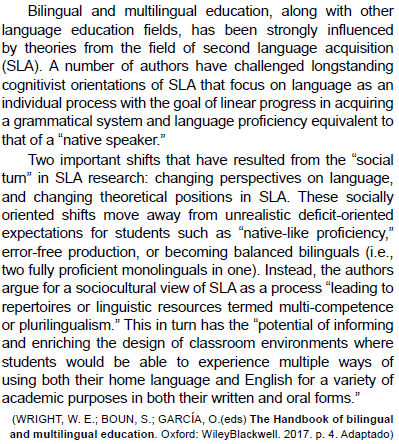What means “giggling fits” ?
By using the phrase “throw it out”, the poster recommends that one should
The World’s strangest laws
1. You can’t call a pig Napoleon in France.
2. It is illegal to die in the Houses of Parliament.
3. In Miami, Florida, you mustn’t skateboard in a police station.
4. In London, you don’t have to pay to take a flock of sheep across London Bridge.
5. In Florida, unmarried women can’t parachute on Sundays.
6. It’s illegal to play golf on the streets of New York.
7. In Kentucky the law still says that everyone must have a bath at least once a year.
8. In seventeenth-century Russia, you couldn’t grow a beard unless you paid a special tax.
9. In fifteenth-century England, it was illegal for men to wear a moustache.
10. In the USA in the eighteenth century, bars couldn’t sell soda water on Sundays.
From the book Practical Grammar John Hughes and Ceri Jones
According to the text, choose the correct alternative:
The lion and the four bulls
Clarke, M.
A lion used to walk about a field in which four bulls lived. Many times he tried to attack them, but whenever he came near, they turned their tails toward one another so that whichever way the lion tried to attack, he would have to face the horns of one of them.
At last, however, the bulls started arguing with each other, and each went off to a different part of the field by himself. Then the lion attacked them one by one and soon had killed all four.
Ann Arbor: The University of Michigan Press, 1996.p.138
The messsage of the text can be summarized as:
Insomnia
Insomnia is the most common of all sleep complaints. Almost everyone has occasional sleepless nights, perhaps due to stress, heartburn or drinking too much caffeine or alcohol. Insomnia is a lack of sleep that occurs on a regular or frequent basis, often for no apparent reason.
How much sleep is enough varies. Although 7 1/2 hours of sleep is about average, some people do fine on 4 or 5 hours of sleep. Other people need 9 or 10 hours a night.
Inability to get a good night’s sleep can affect not only your energy level and mood but your health as well because sleep helps bolster your immune system. Fatigue, at any age, leads to diminished mental alertness and concentration. Lack of sleep is linked to accidents both on the road and on the job.
About one out of three people have insomnia sometime in their life. Sleeplessness may be temporary or chronic. You don’t necessarily have to live with sleepless nights. Some simple changes in your daily routine and habits may result in better sleep.
htttp://www.mayoclinic.com.
The text contains information on:

About ideas stated in the text above and the words used in it, judge the following items.
There are places in the world where wind power works well in freezing temperatures.
The underlined phrase in “orientations about course planning and delivery should not be meant to be prescriptive” (line 3)
Note that the text is predominantly written in the present tense. This can be explained by the fact that
In the fragment from the first paragraph “A number of authors have challenged longstanding cognitivist orientations of SLA”, the underlined term refers to cognitivist orientations which
How facial recognition technology aids police

Police officers’ ability to recognize and locate individuals with a history of committing crime is vital to their work. In fact, it is so important that officers believe possessing it is fundamental to the craft of effective street policing, crime prevention and investigation. However, with the total police workforce falling by almost 20 percent since 2010 and recorded crime rising, police forces are turning to new technological solutions to help enhance their capability and capacity to monitor and track individuals about whom they have concerns.
One such technology is Automated Facial Recognition (known as AFR). This works by analyzing key facial features, generating a mathematical representation of them, and then comparing them against known faces in a database, to determine possible matches. While a number of UK and international police forces have been enthusiastically exploring the potential of AFR, some groups have spoken about its legal and ethical status. They are concerned that the technology significantly extends the reach and depth of surveillance by the state.
Until now, however, there has been no robust evidence about what AFR systems can and cannot deliver for policing. Although AFR has become increasingly familiar to the public through its use at airports to help manage passport checks, the environment in such settings is quite controlled. Applying similar procedures to street policing is far more complex. Individuals on the street will be moving and may not look directly towards the camera. Levels of lighting change, too, and the system will have to cope with the vagaries of the British weather.
[…]
As with all innovative policing technologies there are important legal and ethical concerns and issues that still need to be considered. But in order for these to be meaningfully debated and assessed by citizens, regulators and law-makers, we need a detailed understanding of precisely what the technology can realistically accomplish. Sound evidence, rather than references to science fiction technology --- as seen in films such as Minority Report --- is essential.
With this in mind, one of our conclusions is that in terms of describing how AFR is being applied in policing currently, it is more accurate to think of it as “assisted facial recognition,” as opposed to a fully automated system. Unlike border control functions -- where the facial recognition is more of an automated system -- when supporting street policing, the algorithm is not deciding whether there is a match between a person and what is stored in the database. Rather, the system makes suggestions to a police operator about possible similarities. It is then down to the operator to confirm or refute them.
By Bethan Davies, Andrew Dawson, Martin Innes (Source: https://gcn.com/articles/2018/11/30/facial-recognitionpolicing.aspx, accessed May 30th, 2020)
The authors conclude the text by stating that
According to the text, “...stock the shelves...” (paragraph 3) is an example of
Text 3A9-I
Amazon said Monday it will begin selling the cashierless checkout technology that powers its Go stores to other retailers. The “Just Walk Out” technology enables shoppers to “take what they want and leave” without the need to stop and stand in a checkout line. Cameras and other sensors through the store monitor which items shoppers take with them and charge them automatically when they leave.
Amazon told CNBC it has already inked several deals with retailers interested in bringing the cashierless technology to their stores. An Amazon spokesperson declined to comment on which companies plan to use the technology or how much Amazon is charging them to use it. Amazon said it takes a few weeks for it to install the cashierless technology in retailers’ stores, depending on whether it’s being implemented in a new or existing store. For existing stores, Amazon said it will “work with retailer to install the technology while minimizing impact on current operations.”
Unlike at Amazon Go stores, where users scan the Go app on a turnstile when they enter, shoppers scan their credit card on the turnstile at a store with the Just Walk Out technology. If shoppers need a receipt, they can visit a kiosk at the store and enter their email address, Amazon said. A receipt will be automatically sent to their email address the next time they visit any store with the cashierless technology.
Amazon can tailor marketing and gain valuable insights into customer purchasing habits by tracking activity at its Go stores. However, Amazon said it won’t collect any other user data beyond a shopper’s email in order to send receipts. “Shoppers can think of this as similar to typical security camera
footage,” Amazon added.
The move comes as Amazon continues to build out its network of 25 Go stores across the country. Last month, Amazon launched its first, full-size, cashierless supermarket, called Go Grocery, not far from its Seattle headquarters. CNBC previously reported Amazon is considering bringing the technology to airport shops and movie theaters.
Amazon said its Go stores will begin acccaepting cash last year after the company came under fire for discriminating against the unbanked. Amazon told CNBC it will be up to retailers to decide whether they want to accept cash at stores that license the company’s Just Walk Out technology. Some states, like New Jersey, have new laws banning stores that don’t accept cash.
Internet: <www.cnbc.com> (adapted).
It can be concluded from the text 3A9-I that
Based on the text above, judge the following item.
In the first paragraph, the excerpt “that it refers to members of a public organization having the legal competence to maintain order and enforce the law” reinforces which meaning of the word “police” is condemned by police scholars.
Based on the previous text, judge the following item.
The sentence ‘The fish left, so the people left’ (last paragraph) shows how much the river determines people's lives in the community of Pixaim.







